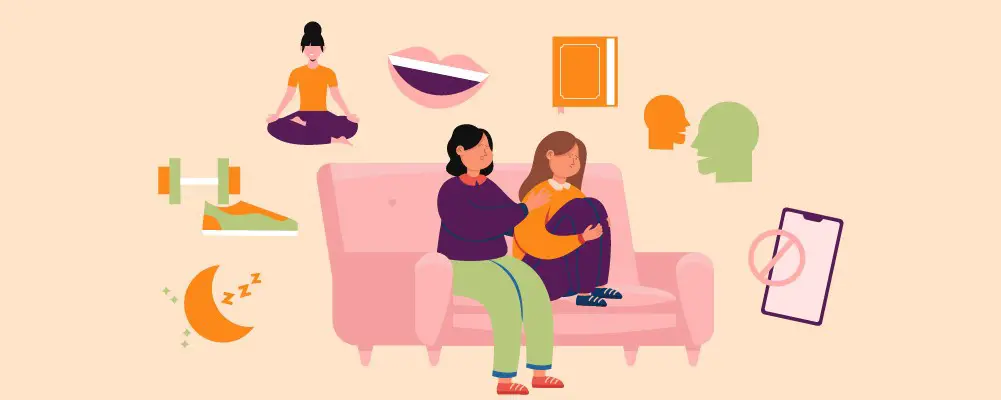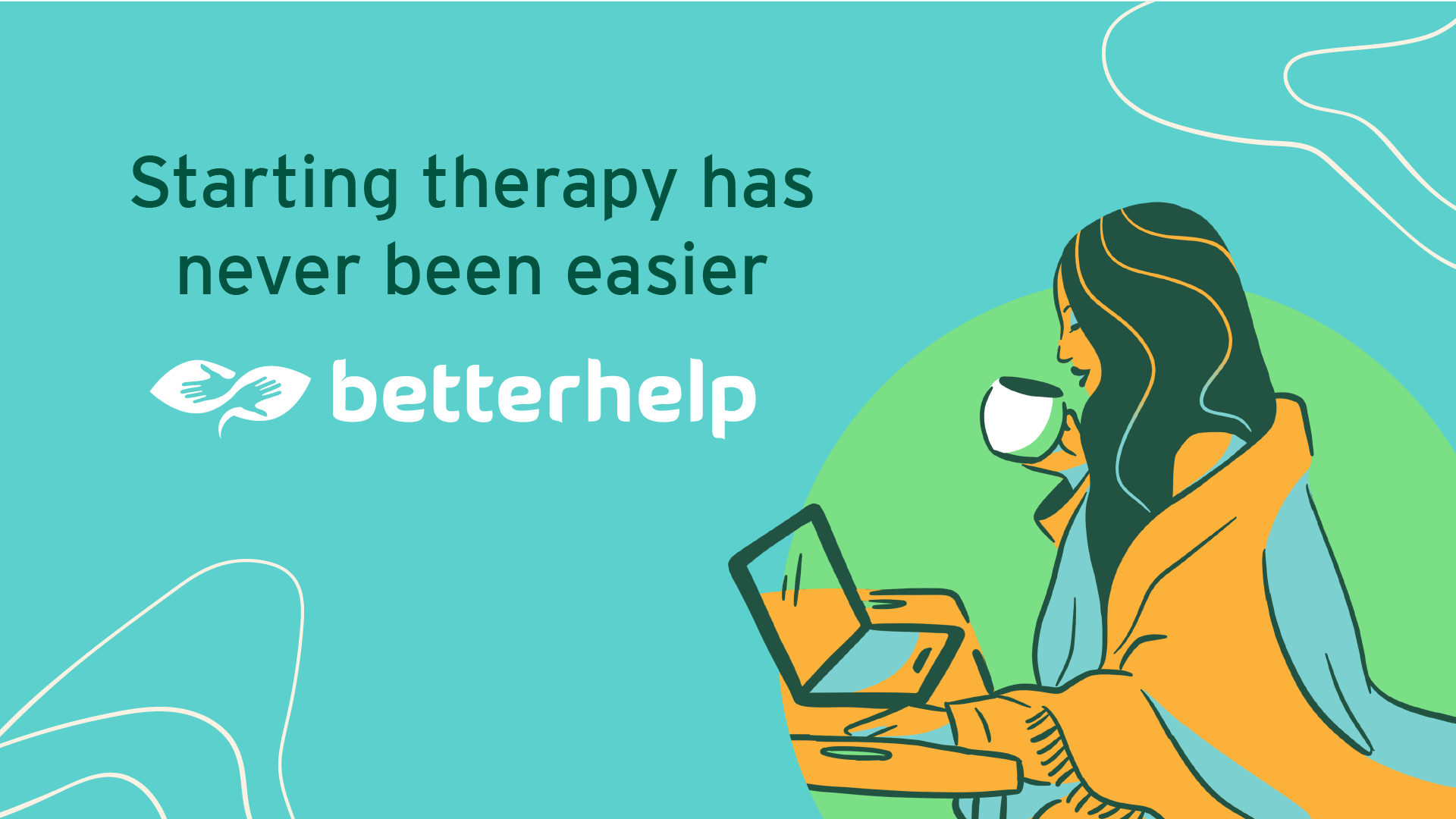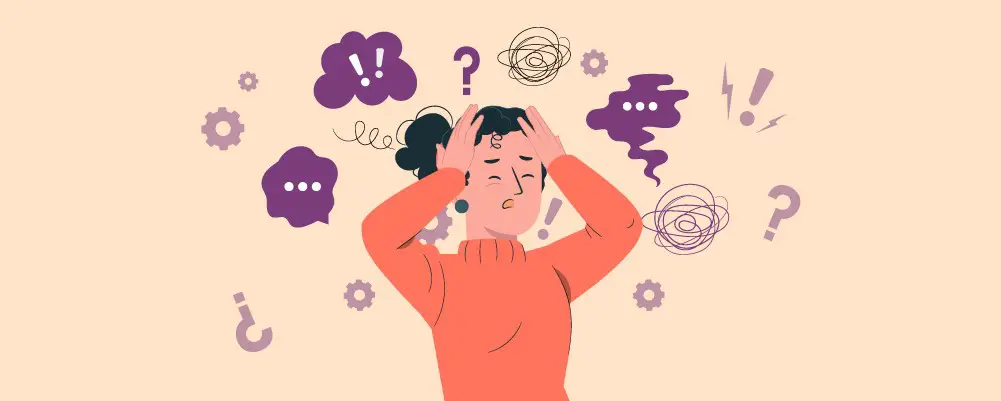As a BetterHelp affiliate, we receive compensation from BetterHelp if you purchase products or services through the links provided
Second-hand anxiety is a relatively new term for an age-old phenomenon. It is what happens when a friend, relative, or coworker comes to you to vent their frustration or anxiety about a situation they’re dealing with.
Second-hand anxiety is not classed as an anxiety disorder, but it may exacerbate the symptoms people with anxiety disorders experience.
Second-hand anxiety is something most of us will experience at some point in our lives. Still, if you find you are too often stressed because you’re absorbing other people’s worries, you might need to take steps to manage your second-hand anxiety.
Humans are deeply empathetic by nature, which means that the whole spectrum of human emotion can be passed from person to person at times.
You might experience positive emotions absorbed by others, like joy at a wedding or excitement at a child’s birthday party. However, with the good can come the bad, and this is where second-hand anxiety or stress comes into play.

What Is Second-Hand Anxiety?
Essentially, second-hand anxiety can cause you to feel stressed or anxious because someone else is feeling or expressing those emotions. This could be someone talking to you face-to-face, over the phone, or by text or social media.
Second-hand anxiety is more common in face-to-face interactions because we tend to mirror the emotions of the people we’re around.
This is harder to do over the phone or by text, but these communication methods can still result in second-hand anxiety.
Understand The Signs Of Second-Hand Anxiety
The symptoms of second-hand anxiety are often similar to chronic anxiety. This can include physical symptoms such as an elevated heartbeat, shortness of breath, nausea or feeling excessively hot or cold.
Psychological symptoms may include feeling like you must find ways to help the other person deal with their anxiety, worries about things going wrong or wanting to avoid certain situations. It may also manifest in less clear-cut ways, with general feelings of worry, dread, or overwhelm.
If you become anxious due to someone else’s emotions, it is essential to know what to do to manage these feelings. You won’t be any help to your loved ones if your second-hand anxiety becomes unmanageable, so it is a good idea to find coping techniques and set boundaries with loved ones to help.
Set Boundaries With The People In Your Life
All relationships should include healthy boundaries. Often, these may not even need to be communicated, but if you do need to let someone know your boundary, it can help to understand how to talk about it constructively.
There’s nothing inherently wrong with someone coming to you to seek help and advice. Still, if they are coming only to you or coming to you very often, the chances of second-hand anxiety developing are higher.
If someone cannot respect your boundaries, getting some space from that relationship could be helpful.
If you are in the middle of a conversation that is becoming stressful or unproductive, you could gently suggest that you meet again to continue the discussion. Still, you are unable to continue right now.
Use Your Active Listening Skills
Active listening can help you better support your loved one while reminding yourself that these are their emotions – not your own. Active listening can help you keep your perspective and avoid taking on their feelings to your detriment.
You could also ask your loved one what they need from you. This can help you understand the role your loved one needs you to play, whether this is just a listening ear or help developing solutions.
Understanding what your loved one needs from you can be invaluable in reducing second-hand anxiety.
Reduce Your Time Spent On Social Media
While most instances of second-hand anxiety might occur in person, it is still possible to experience the phenomenon in other ways. Social media is a common source of anxiety among people of all ages. It can also cause second-hand anxiety in several ways.
Social media, the internet, and smartphones allow us to be connected to loved ones at all times, which can have clear benefits. However, for anyone experiencing second-hand anxiety, it may mean that you cannot separate from the situation effectively.
Additionally, if you see posts, updates, or content from friends and family expressing negative emotions, this could cause second-hand anxiety.
Taking regular breaks from social media to safeguard your mental health is a good idea. Let your loved ones know you will not be contactable unless in an emergency. Set your phone to Do Not Disturb and do something that brings you joy.
This could be a walkout in nature, curling up on the couch with a good book, or going out for a meal and a movie.
Practice Meditation And Mindfulness
Meditation and mindfulness can be invaluable stress-relieving options. They can help you manage feelings of stress and anxiety both in the moment and at a later time.
Mindfulness is the process of staying in the present moment, which could be helpful in cases where you’re experiencing second-hand anxiety.
Mindfulness can help ground you and remind you that your emotions stem from someone else and not from you.
Meditation can help you release unhelpful emotions or thoughts, keeping you present and relaxed. If you’re helping a loved one through a difficult time and are experiencing a lot of second-hand anxiety, it could help to meditate after you see them.
This can keep you mentally healthy and strong, which benefits you and others.
Final Thoughts
Second-hand anxiety is normal, but like any stressor, it should be managed to ensure it doesn’t develop into a more severe mental health condition. Many options can help you manage your second-hand anxiety and any other stressful things you might deal with in your everyday life.
Here at Rest Equation, we make it our business to find the best stress management tools, life advice, and products to help our readers live a low-stress life.
If you need to find a new way to manage the stress of second-hand anxiety, look at some of our guides, articles, and reviews to get started.
FAQs




